Paving stones are one of the most popular landscape design renovations homeowners in Massachusetts request.
Not only are patio pavers, pool deck pavers, driveway pavers, and walkway pavers aesthetically pleasing, but they can also help to increase the value of your home.
One of the most common questions we receive from homeowners in Massachusetts researching paver installation in Massachusetts is:
“What is the most sustainable paving stone for my landscape design project?”
While a question like this one may not have been of paramount concern thirty years ago, today, younger homeowners or first-time homebuyers have expressed concern over where building materials are coming from and how they may impact the environment. Homeowners are searching for new ways to reduce their carbon footprint, even when it comes to residential landscape design in Massachusetts, seeking the most sustainable paving stone for their patio, driveway, walkways, and more.
What is the Most Sustainable Paving Stone?
Before we discuss how sustainable and eco-friendly pavers can be, let’s first take a look at the individual materials and different types of pavers. The great news is there are many eco-friendly paving solutions for homeowners in Massachusetts and around the world!
These are just a few examples of sustainable paving stones. The truth is, most paving stones are durable and long-lasting, making them a sound investment for homeowners and a sustainable landscape design solution.
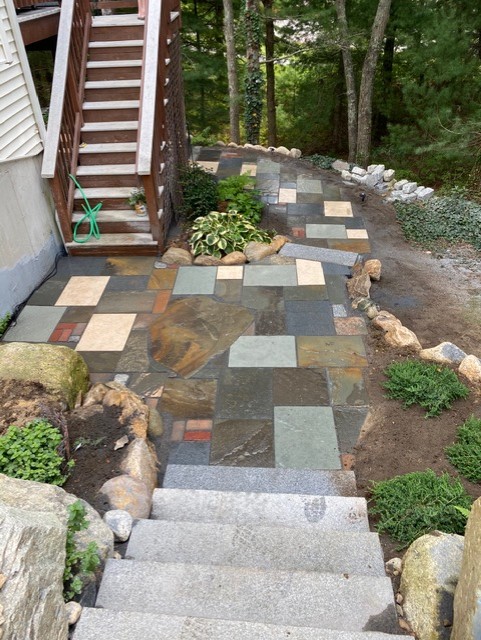
Is a Sustainable Paving Stone Also Eco-Friendly?
When something is eco-friendly, it does not mean it’s sustainable, and vice versa. While finding a sustainable paving stone is easy, can that automatically mean they are eco-friendly too?
Let’s talk about the difference between sustainable materials and eco-friendly materials.
When something is sustainable, there is an emphasis on the future and has long-term environmental benefits. So when your landscape designer tells you that brick is a sustainable paver, what they are saying is that brick is durable, long-lasting, and requires little to no resources or maintenance that may harm the planet. Brick pavers are sustainable for these reasons, and they likely won’t need replacing or repairs for decades, if not centuries.
When something is considered eco-friendly, it means that the product or material doesn’t harm the planet. Paving stones do not harm the planet, but what about the installation process?
The paver installation process may vary from landscape designer to landscape designer, but the fundamentals of the process are universal.
According to a recent blog from Home Depot, the installation process is as follows:
- Prepare the area
- Clear out grass and soil
- Add paver base
- Add and level the paver sand
- Place the paving stones
- Cut the pavers
- Add edging stones
- Finish the area
The paver installation process is done almost entirely by hand, requiring little need for heavy machinery that could potentially release harmful toxins into the atmosphere. While almost nothing is 100% sustainable and eco-friendly, the paver installation process is not proven to hurt the plant.
To learn more about paving stones, visit the JM Mento Landscape Design Services page and schedule a free consultation today!
Follow JM Mento Landscape Design on Facebook, Twitter, Instagram, Pinterest, and Houzz for project details and updates!


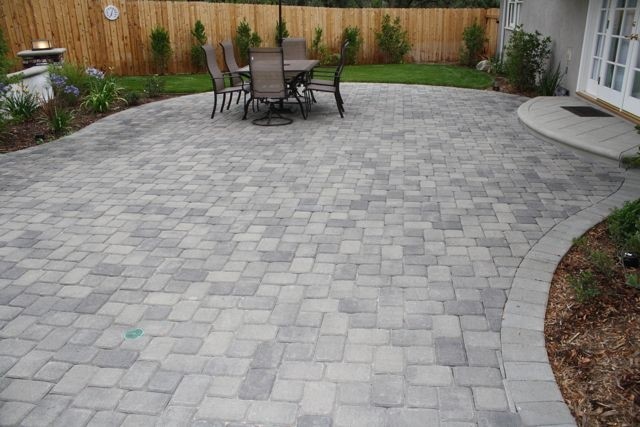
0 Comments